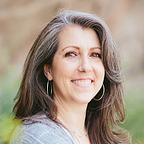12 Ways Antidepressants Make All the Difference
117 days. That’s how long I lasted being off antidepressants. My triumphant freedom endured almost four months. I’m now back on meds, and probably will be for the rest of my life, and that’s just fine with me. After 12 years being on SSRIs, it only took 117 days being off before I had my worst mental health episode in 15 years — and by worst, I mean I called two different hotlines in one day, and pledged to a social worker friend to not harm myself without calling her first.
It’s funny how the very tools and practices that make us healthy and happy can create a sense of wellbeing that fools us into thinking we don’t need them anymore. I’ve re-realized I have a chronic, life-threatening illness. In fact, I was surprised to find myself checking the “I have a disability” box on a form the other day, because I fulfilled three of the 18 listed criteria. I’m surprised that rather than feeling ashamed or defeated, I feel relieved. Finally, I can see myself as I am, and relax into acceptance.
Being meds-free was a fascinating personal ethnography. For four months I went on safari to the wild world of My Unmedicated Brain, becoming a participant-observer of My Internal Committee. Being meds-free allowed me to experience firsthand the remarkable difference serotonin levels make in that environment. It forced me to remember how life used to be, and marvel at the power of a few select chemicals to radically alter my reality. These are my research findings.
1. Depression is sinking into a black abyss with no bottom. You can’t see the sun or the surface, and eventually drowning seems like the only relief. Death becomes logically inevitable. Meds put a bottom on the abyss. Even when you go all the way down, you can still see the sun, and you know just one strong push of your legs will take you to the surface, where you can breathe.
2. Depression is when all the scary, bad, wrong things about the world and your life show up randomly at all hours. They easily break through your paper-and-bamboo front door and start shouting, breaking stuff and crapping on everything. Getting them to leave requires ninja fighting skills and a ton of energy you don’t have — and sometimes calling the cops. Meds are a steel-reinforced oak door, and a mute button you can push anytime those assholes congregate on your porch and start yelling.
3. Depression is having your thoughts turn into super-sharp professional chef knives. Wielded by an upset toddler inside your head. Meds put dull blade guards on those knives, and gives them to a responsible teenager instead.
4. Anxiety (Depression’s cousin) is how the smallest, slightly scary “what if” tickling the edge of your consciousness sends a physical jolt of adrenalized terror through your torso. Meds allow you to go “oh hi, scary ‘what if’”, and feel only slight tension in your chest. But then it, and you, move on — even if the scary “what if” comes into full view of your consciousness.
5. Depression is amnesia plus no imagination. You can’t imagine it ever being better, and doubt your memories of when it was. Life is meaningless, useless and a burden — and it’s your own fault. Meds gives you back your memory, imagination and self-compassion.
6. Depression and anxiety are desperation. You become a caged, fanged animal starving, snarling and pacing in a cage. Meds open the door and put out food and soft bedding.
7. Depression is powerlessness. Meds make powerlessness tolerable. Sometimes they even allow you to (re)discover the small, meaningful ways you do have power.
8. Depression is deep apathy. Meds allow caring again — in the right amounts about the right things and the right people.
9. Depression is trying to swim upstream in a wool coat. Meds take off the coat. It’s still challenging, but doable — and you can breathe.
10. Depression is having atrophied muscles and brittle bones. The tiniest breeze knocks you down and stronger gusts can break you in half. And you hate yourself for it. Meds strengthen your muscles so you can stand upright even in a stiff wind, and remind you to find a sturdy tree to hang onto if necessary.
11. Depression is walking a balance beam. You have very little leeway — one mistaken step, distraction, or jeer from an onlooker and you fall and break your teeth. Meds are strolling a wide street in a nice neighborhood. You still need to watch where you’re going and look out for cars, but there’s way more room for zigzagging and flailing and tripping and daydreaming and cartwheeling.
12. Depression is constantly thinking you’re stupid/weak/lazy/crazy/ bad/unfit. Meds remind you you’re just a person in all your glory and flaws — who also has a chronic, life-threatening illness.
